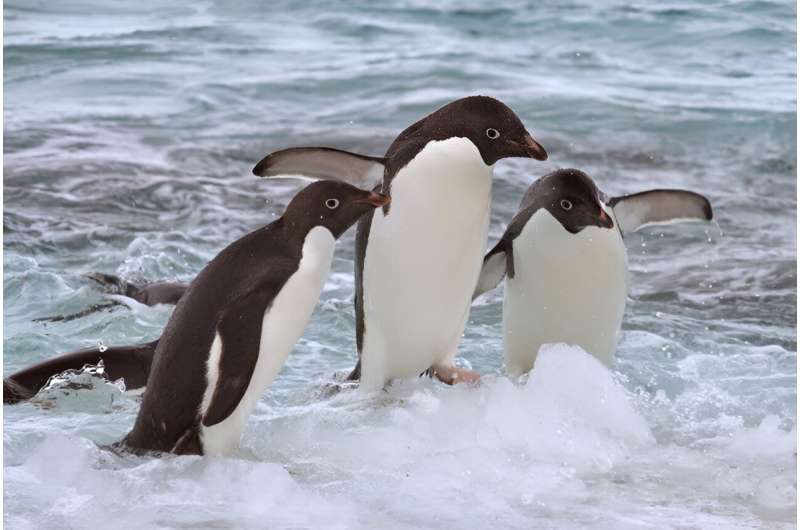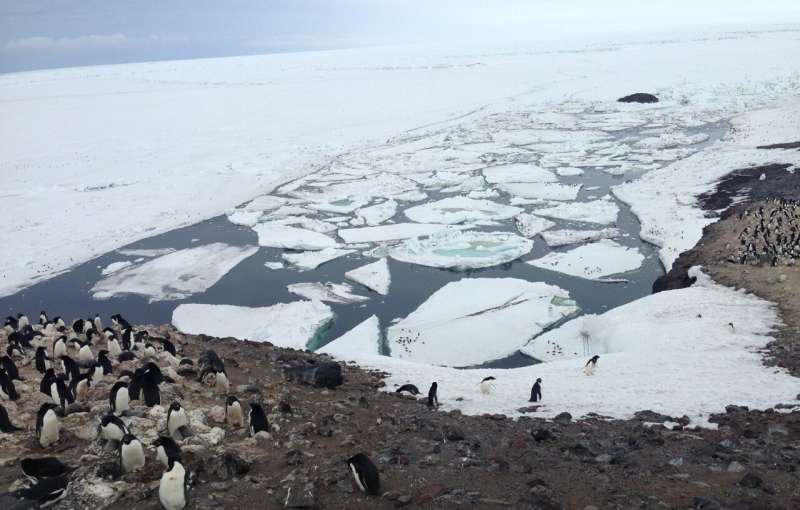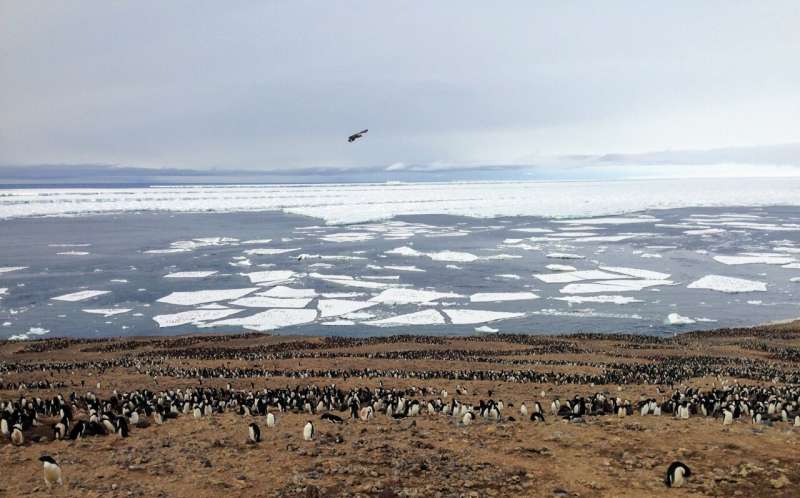This article has been reviewed according to Science X's editorial process and policies. Editors have highlighted the following attributes while ensuring the content's credibility:
fact-checked
peer-reviewed publication
proofread
Research shows Adélie penguins must balance the benefits and costs of riding on sea ice during long-distance migration

Research by Petaluma-based non-profit, Point Blue Conservation Science, shows how Adélie penguins within the Ross Sea, Antarctica use sea ice in their annual migrations. The paper, "Going with the floe: Sea‐ice movement affects distance and destination during Adélie penguin winter movements," is published in the journal Ecology.
Adélie penguins, though flightless, can undertake extraordinary migrations like their flying relatives, traveling thousands of kilometers out to sea from their on-land breeding colonies in Antarctica, tracking daylight and food during the long Antarctic winter.
Many other species are known to use wind or ocean currents to help them save energy as they travel but, until now, relatively little has been known about if and how Adélies might use the movement of sea ice to support their travels.
Understanding this interaction can provide new ecological and conservation insights, especially as long-term monitoring has revealed record low levels of sea-ice extent and concentration in Antarctica and within the Ross Sea over the last 10 years.

Point Blue has studied Adélie penguins on Ross Island, Antarctica since 1996. Recent advances in the miniaturization of electronic tags allowed researchers to track the winter movements of 87 individuals across 146 trips spanning three years
Point Blue's Dennis Jongsomjit, lead author of the study noted, "Combining these new tracking tags with remotely sensed satellite data of sea-ice movement meant that we were able to investigate in greater detail than we've ever done before if and how Adélie penguins interacted with sea ice."
The study found Adélie penguins travel greater distances when they received more support from the moving sea ice. However, penguins can also be impeded by sea ice, with slower traveling speeds when they move against the prevailing ice drift.
As ice speeds increased, penguins were found further north, indicating a need to balance the benefits and costs of riding on ice floes. Variation and changes in the movement of sea ice may serve as a mechanism impacting adult survival and reproductive success, helping drive population trajectories on Ross Island.

The study also underscores the interconnectedness of various species in the Southern Ocean, with ocean and sea ice currents influencing not just penguins but also the life history of other species they interact with, like krill, silverfish, and Antarctic toothfish.
"As climate change alters sea ice patterns," Jongsomjit added, "it could impact the energetic costs of migration, breeding success, and population dynamics of Adélie penguins, as well as the overall ecology within one of the most pristine ecosystems on Earth."
More information: Dennis Jongsomjit et al, Going with the floe: Sea‐ice movement affects distance and destination during Adélie penguin winter movements, Ecology (2023). DOI: 10.1002/ecy.4196
Journal information: Ecology
Provided by Point Blue Conservation Science




















